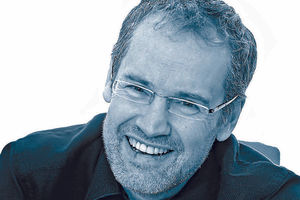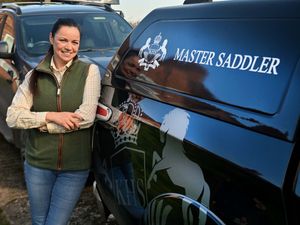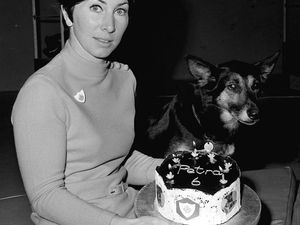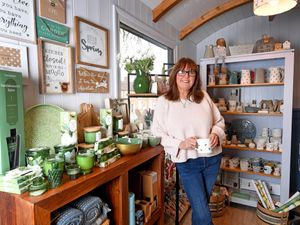Andy Richardson: Winner takes it all – just don't expect applause from dad
They say history is written by the winners. And I'm quite sure that the kid who suffered a ruthless thrashing at my merciless hands won't be committing thoughts to paper any time soon.

On the afternoon that I captained my then-home town, West Bromwich, to a 10-0 clean sweep against Gloucester, victory was in my thoughts. So welcome to winners, baby. Let's get writing.
We were playing table tennis somewhere in the rolling, verdant hills an hours' drive south of the Black Country.
I was proud to be our skipper, after all, West Brom had previously produced Frank Skinner, Denise Lewis, Judas Priest axeman KK Downing, Led Zep singer Robert Plant and actress Julie Walters.
Walters, incidentally, went to school with my dad. And there's a reason for mentioning that. For as happy as I'd be to commit 600 words to paper on any of the aforementioned West Brom glitterati, it's my dad who features most prominently in this story. So pull up a chair, Pa. Get ready for the phone to ring and the banter to start: this one's for you, goddammit.
It wouldn't be fair to describe my father as competitive.
That would be like calling Don Bradman 'a decent batsman', Frank Sinatra 'a reasonable crooner', or Pete Postlethwaite 'not bad at acting'. Calling dad competitive would be understatement on a par with saying Mars is 'distant', the sun is 'warm' and Pluto is 'a bit chilly'. My dad was – is – a vortex of inter-galatic competitiveness.
His house Monopoly points tally currently stands at 1,135 games to nil. Gah, if only I didn't keep landing on Green Park.
Dad was a naturally gifted sportsman. He'd run 100m in 11 seconds, break school records in every athletic discipline and score the winning goal against his team's bitterest rivals. As a kid, he was also pretty gifted in the 'run drinking department', or so I've been told.
Dad's sporting prowess continued long after the point at which most blokes retire to the sofa with a can of Carling and a subscription to Sky.
And when he reached the age at which he could no longer cut it in Division One, he took his place on the coaches' bench.
So when West Bromwich travelled to play Gloucester, the driver-coach-team-manager-and-buyer-of-half-time-oranges was the venerable Mr R Snr.
My first match was against Gloucester's number one player. I whupped him. The comprehensive 21-10, 21-11 victory would be enough, I thought, to keep the coach happy.
"What were you doing, son?" dad asked.
I'd played well then eased up on my opponent to prevent a whitewash.
He reprimanded me: "You weren't trying. You're playing for your town now, you've got to put the effort in."
A mist descended. It was scarlet in colour. I sat in my chair and sulked. Ah. Diddums. And when I rose from my chair to play Gloucester's number two, I vented silent rage.
The first match passed in the flicker of an eye. The scorer was as embarrassed as Gloucester's supporters. "21-1. First set to West Bromwich."
I didn't go to the coach's corner at half time, instead taking up position and readying myself for the second set. And that's when I got really mean. Four minutes later, the scorer mumbled: "Twenty one-nil. Game, set and match."
I shook hands with my vanquished opponent and went to listen to my coach's wisdom.
"You shouldn't have gone that hard, son.You'll destroy the other's guy's confidence. Learn to be a better sport."
Writers from Shakespeare to Turgenev have charted the complex relationships between fathers and sons. Though I'll wager they've never viewed that particular kinship through the prism of table tennis
On that day, back in 1984, I'd explored the spectrum of possibilities; touching all bases from good sportsmanship to utter, blinkered, psychotic malevolence.
And I learned the immutable law of fatherhood: when it comes to dads, sons can never win.





